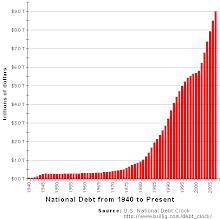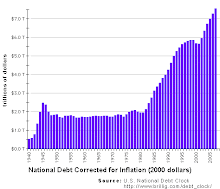 Source: http://members.forbes.com/global/2006/0522/032.html
Source: http://members.forbes.com/global/2006/0522/032.htmlClick the image above to enlarge it.
In the May 22, 2006 Forbes article "Tax Misery & Reform Index," Jack Anderson explains that the tax burden in the United States is low compared to most other countries in the world.
Asia continues to look attractive in our annual ranking of tax burden. And even China's bum score may be deceiving.
Our 2006 Tax Misery & Reform Index offers a global view of the top marginal rates of taxation--the ones that typically most affect a successful entrepreneur. The news is good as the rates generally continue to decrease around the world.
The Misery scores--a sum of six tax rates--are lower in 16 of the locations this year, with France decreasing the most (although still in the top position). There was no change in 28 locations, and only 8 increased Tax Misery (7 of them just slightly). Overall, the original European Union-15 and China have the highest levels of Tax Misery--China because of its extraordinary social security and pension rates. The lowest levels generally continue to be in the rest of Asia, the Middle East, Russia and the U.S. (Keep in mind that countries at the bottom of our chart are the most tax-friendly to entrepreneurs and wage earners, while those at the top are the harshest.)
China's "miserable" score comes with a big qualifier. Social taxes tend to have income caps that spare the highest earners, and special tax holidays for foreign investors and expatriates keep the "effective" rate of taxation (as opposed to the top "marginal" rate) closer to the other Asian countries. But a specific measurement of net take-home pay (after income and social taxes) for a top executive reveals that only one other Asian country, Japan, leaves the executive with less than China does. And the Chinese taxman's work is never done: A new levy on the 45 billion pairs of disposable wooden chopsticks used annually will push conservation as well as increase revenues.
Almost half of the countries on the bright side of global taxation are Asian, including Hong Kong and Taiwan. Singapore continues to lower levies, and Korea codified its new low 17% flat tax (but only for expatriates), which is less than half the top 39% local rate in the Misery Index. India remains at the low end, despite this year's five-point upturn. Japan, although reducing its Misery score, has been hardening its tax treatment of expatriates and remains, with China, the tax worry of the Asian region. Indeed, Japan is not likely to be improving its score in the short run, if expectations of higher consumption taxes to close a massive budget deficit prove out. The nation oughtn't take current glimmers of economic growth for granted.
Not surprisingly, eight of the top ten countries on our list are European. France, though still at the top of the Misery Index, also showed the most reform this year (with a reduction of eight points) by reducing taxes under besieged Prime Minister Dominique de Villepin. A top individual progressive tax rate of 40% is down from 48%. A high earner is now charged this on his incremental salary and investment income, as well as an 11% flat tax on all pay.
Germany, despite a record of reform since 2000, went substantially in the other direction this year. The reforms that were anticipated under former chancellor Gerhard Schröder were not realized. Instead, taxes were increased in 2006 by the new coalition government of Chancellor Angela Merkel. (Our index records planned tax moves, ahead of their full enactment--so we must adjust when implementation falls short.)
We show Germany from the perspective of Berlin--where state and local taxes are a significant factor. (Same in the U.S.--note the difference between New York and Texas.) A top-earning Berlin entrepreneur is now looking at 14 additional points of Misery.
As with China, you have to consider special provisions for multinationals and expatriates. Here France has also been making concessions, but elsewhere in Europe this flexibility is being limited. This only makes seemingly high-tax China, which gives the foreign direct investor a ten-year tax holiday, more of a magnet for international capital.
Jack Anderson is an international tax attorney in the U.S. and EU, and a member of the French bar, the U.S. Tax Court and the California and New York bars. He is also a CPA, M.B.A. and partner in an international law firm in Paris. E-mail: jack.anderson@wanadoo.fr






No comments:
Post a Comment